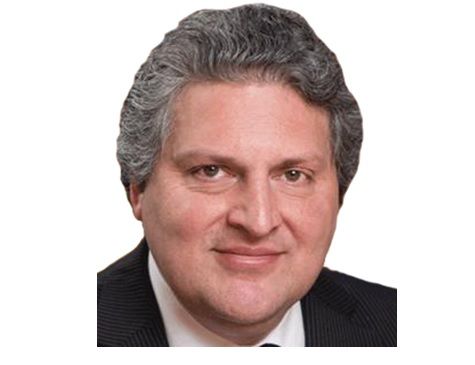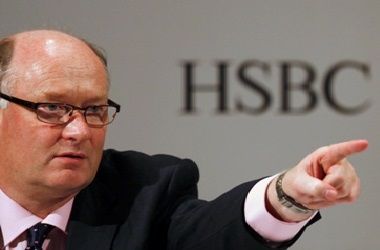BRAVO DOUGLAS FLINT. The rant by HSBC’s chairman in the group’s interim statement against the onslaught of incoherent and globally ill-fitting banking regulation – together with its extra-territorial tentacles and political interference – made for fabulous reading,
Would he have been so outspoken had the group’s first-half earnings been more upbeat? Who knows, but it was nonetheless the clearest and most articulate narrative I’ve seen to date from a senior figure in global banking around the massive operational and human challenges that are facing banks to comply with wacky rules – not to mention the political intimidation behind the rules – and the impact they’re having on deflecting banks’ attention and detracting from the task of serving customers.
He said the demands placed on human capital and on operational and systems capabilities were unprecedented, the regulatory reform programme is increasingly fragmented – not to mention often extra-territorial, still evolving and hugely consumptive of resources that would otherwise be customer-facing. Flint also criticised highly granular multiple stress tests that are inconsistent in definition, and scenarios between major jurisdictions that require considerable duplication of effort.
He warned of an “observable and growing danger of disproportionate risk aversion creeping into decision-making in our businesses as individuals, facing uncertainty as to what may be criticised with hindsight and perceiving a zero tolerance of error, seek to protect themselves and the firm from future censure”.
He said that this behaviour was in part because of the heightened expectations of society regarding the role of banks in supporting economic activity and the potential penalties for failing to live up to those expectations, particularly regarding conduct issues or breach of trust. He called for clarity from public policy and regulatory bodies over their expectations.
Flint’s comments should carry weight with the public policy figures he not so obliquely criticises
THE FACT THAT he stuck his neck out speaks volumes. Beyond anything else, his comments are the best argument for why chairmen and chief executive roles in banking need to be separate. On the basis that CEOs focus on business and operational aspects of a given business, it should be left to the chairmen to deal with business environmental, political and softer issues. And be combative where they feel the need.
Where are David Walker, Philip Hampton, John Peace or Norman Blackwell – the cosy trio of sirs plus a Lord who acts as his UK counterparts at Barclays, RBS, Standard Chartered and Lloyds? Or their peers at major European banks – the likes of Urs Rohner (Credit Suisse); Axel Weber (UBS); Deutsche Bank’s Paul Achleitner or Giuseppe Vita at UniCredit?
They’re banking’s invisible men when it comes to the policy environment [BNP Paribas’ Baudouin Prot has had his hands full of late with the not insignificant matter of the US sanctions fine, so I suspect he’s keeping schtum.]
Comments by StanChart’s Asia CEO Jaspal Bindra, incidentally, about banks being treated as criminals – just as the bank waltzes blithely and scarcely believably into yet another fine for lapses in anti-money laundering controls – were ill-advised and poorly timed. I would imagine the fact that the bank had to scramble to distance itself from Bindra’s comments will do little for his career …
What’s interesting in the Flint case is that he is also chairman of the Institute of International Finance, the lobby group representing 500 financial institutions which has been silent and frankly annoyingly irrelevant in this entire debate. I would have liked to have seen him make similar comments wearing his IIF hat, as that would have inferred broad industry support for his stance. Whatever the case, Flint’s comments should carry weight with the public policy figures he not so obliquely criticises.
At a time when banks are drowning under a ton of operational drudgery and attempting to fight political battles not of their solving, his timing was spot-on. I think we all painfully remember former Barclays CEO Bob Diamond attempting to tell UK lawmakers at a Treasury Select Committee hearing in 2011 that the period of remorse and apology for banks needed to be over and that banks needed to be allowed to concentrate on doing business.
THAT EXCHANGE EVEN today makes me cringe. Diamond’s comments were poorly judged. It was the wrong time, definitely the wrong place and he was the wrong man to make them. Let’s not forget that he had been dubbed not long before then by former UK Business Secretary Peter Mandelson – by dint of his compensation – as “the unacceptable face of banking”. No matter that Mandelson was for many people the unacceptable face of politics.
Flint wasn’t asking for an end to banker bashing, his comments were far more objective. Policymakers should pay attention. The regulatory pendulum has swung too far and the lack of co-ordination is close to a deal-breaker for the industry.
As I’ve written many times before, lawmakers have not just tried to solve the last crisis; they’ve sought vengeance. I’ve given speeches in public calling for an end to the regulatory inanity. But I can say what I like until I’m blue in the face. At the end of the day, I’m not the chairman of one of the world’s biggest banks.
To the extent that banks have separated their chairman and CEO roles, if Flint’s counterparts were to take a leaf out of his book, I genuinely believe their collective actions would wield some influence. Bank chairmen have been silent for years. It’s about time they stood up and were counted.
To bank chairmen, I say: step up to the challenge and get in the fight. To bank shareholders, I say: continue to fight the split chairmen and CEOs, be it at Goldman Sachs, Morgan Stanley or JP Morgan. They’re different jobs. Flint has put down a marker. The industry shouldn’t let it pass unheeded.

